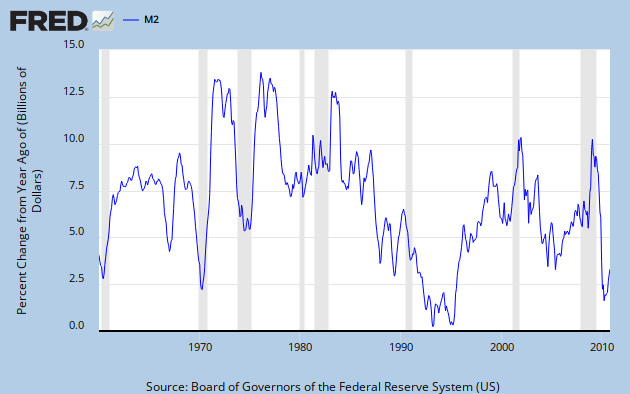clifp
Give me a museum and I'll fill it. (Picasso) Give me a forum ...
- Joined
- Oct 27, 2006
- Messages
- 7,733
I've always been a gold skeptic. Partly cause my one and only precious metal investment a 100 oz bar of silver ended up getting lost in move. But mostly cause I figured that owning something that paid no dividends or interest, or provided no capital that let others invent the next iPad, or Hollister clothing line etc. was a lousy investment.
Last night with gold hitting a record level I watched a very good interview by Charlie Rose with 3 gold experts "All about gold with John Hathaway of Tocqueville Asset Management, Peter Munk, chairman and founder of Barrick Gold & James Grant, editor of Grant's Interest Rate Observer"
Peter is the CEO of the largest gold mining company of the world, Hathaway is the founder of the first Gold ETF, and James Grant is somebody who I know many on the forum have followed. After watching this 30 minute interview, I realized there was a lot about gold I didn't really understand.
First, Grant said that gold isn't an alternative asset class, like I thought. Rather gold is money pure and simple and it has been money for thousands of years . This despite the best efforts of central bankers and governments to convince us that this paper/electronic stuff is money and gold is just another commodity, there are billions who believe differently. For those of us in the US, Canada and some European who's currency has always been pretty stable using dollars, or maple leafs is convenient way of handling transactions. However, Latin America businessman, oil sheiks, and government kleptocrats in places like Africa and Afghanistan have always been skeptical about paper money for good reason. They have been buying gold for a very long time. This certainly isn't going to change.
John Hathaway talked about how the availability of gold ETFs has made much easier to buy physical gold and that accounts for a lot of the increased demand.
Finally, Peter Munk explained that real demand is not jewelry, a few commercial uses, and the tin foil set stocking up their bomb shelters as I thought, rather it is fear. Now most of this fear is a result of the economic crisis, but some of it is due to concerns about terrorism, the rise of Islamic extremist, China etc. Peter points out in the late 1980s and 90s when communism had collapsed capitalism had one, America was the lone superpower, and peace was breaking out, gold prices didn't move.
The panel discussion includes lots of comments about Bernanke and QE2, not surprisingly they aren't fans.
I worry that I have arrived to late at the gold party to make any money, and certainly will go down in price if "Happy Days are Here Again". Still I won't be pooh-poohing those who have made a large gold purchases in the future. Anybody else looking at buying gold for the first time?
Last night with gold hitting a record level I watched a very good interview by Charlie Rose with 3 gold experts "All about gold with John Hathaway of Tocqueville Asset Management, Peter Munk, chairman and founder of Barrick Gold & James Grant, editor of Grant's Interest Rate Observer"
Peter is the CEO of the largest gold mining company of the world, Hathaway is the founder of the first Gold ETF, and James Grant is somebody who I know many on the forum have followed. After watching this 30 minute interview, I realized there was a lot about gold I didn't really understand.
First, Grant said that gold isn't an alternative asset class, like I thought. Rather gold is money pure and simple and it has been money for thousands of years . This despite the best efforts of central bankers and governments to convince us that this paper/electronic stuff is money and gold is just another commodity, there are billions who believe differently. For those of us in the US, Canada and some European who's currency has always been pretty stable using dollars, or maple leafs is convenient way of handling transactions. However, Latin America businessman, oil sheiks, and government kleptocrats in places like Africa and Afghanistan have always been skeptical about paper money for good reason. They have been buying gold for a very long time. This certainly isn't going to change.
John Hathaway talked about how the availability of gold ETFs has made much easier to buy physical gold and that accounts for a lot of the increased demand.
Finally, Peter Munk explained that real demand is not jewelry, a few commercial uses, and the tin foil set stocking up their bomb shelters as I thought, rather it is fear. Now most of this fear is a result of the economic crisis, but some of it is due to concerns about terrorism, the rise of Islamic extremist, China etc. Peter points out in the late 1980s and 90s when communism had collapsed capitalism had one, America was the lone superpower, and peace was breaking out, gold prices didn't move.
The panel discussion includes lots of comments about Bernanke and QE2, not surprisingly they aren't fans.
I worry that I have arrived to late at the gold party to make any money, and certainly will go down in price if "Happy Days are Here Again". Still I won't be pooh-poohing those who have made a large gold purchases in the future. Anybody else looking at buying gold for the first time?

